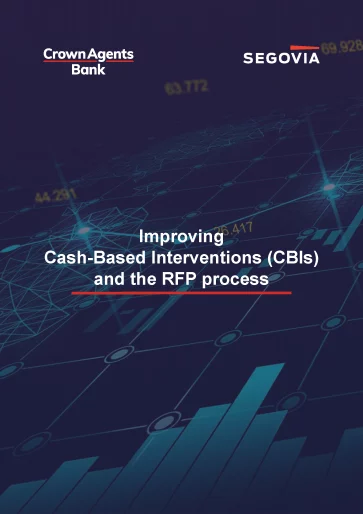Improving Cash-Based Interventions (CBIs) and the RFP Process
Over the last two decades, governments as well as humanitarian and relief organizations have dramatically expanded the use of cash and cash equivalent transfers to combat poverty, improve health outcomes and expand access to basic goods and services. Both academic research and on-the-ground experience have demonstrated that cash, in all its forms, when used properly, can provide quicker, cheaper, and more flexible assistance, whether in the context of enhancing the long-term economic development of a region or rapidly responding to a natural disaster.
While the value of cash based interventions is undisputed, there have been increasing efforts to digitize cash transfers to avoid risks and increase efficiency. The need for more security, transparency and accountability, as well as concerns about liquidity and staff costs, are among the drivers of this trend.
Selecting service providers for digital CBIs has proved to be a difficult and complicated process for implementing organizations and technology partners alike. In our experience, and in the experience of other e-transfer providers, CBI tenders have a high rate of non-response from bidders. Often providers are not aware of relevant tender proceedings, while at other times tenders prove too difficult to respond to.
The goal of this document is to provide you with tools and guidelines for the design and implementation of CBIs through the choice of implementing partners, contractors and technology.



